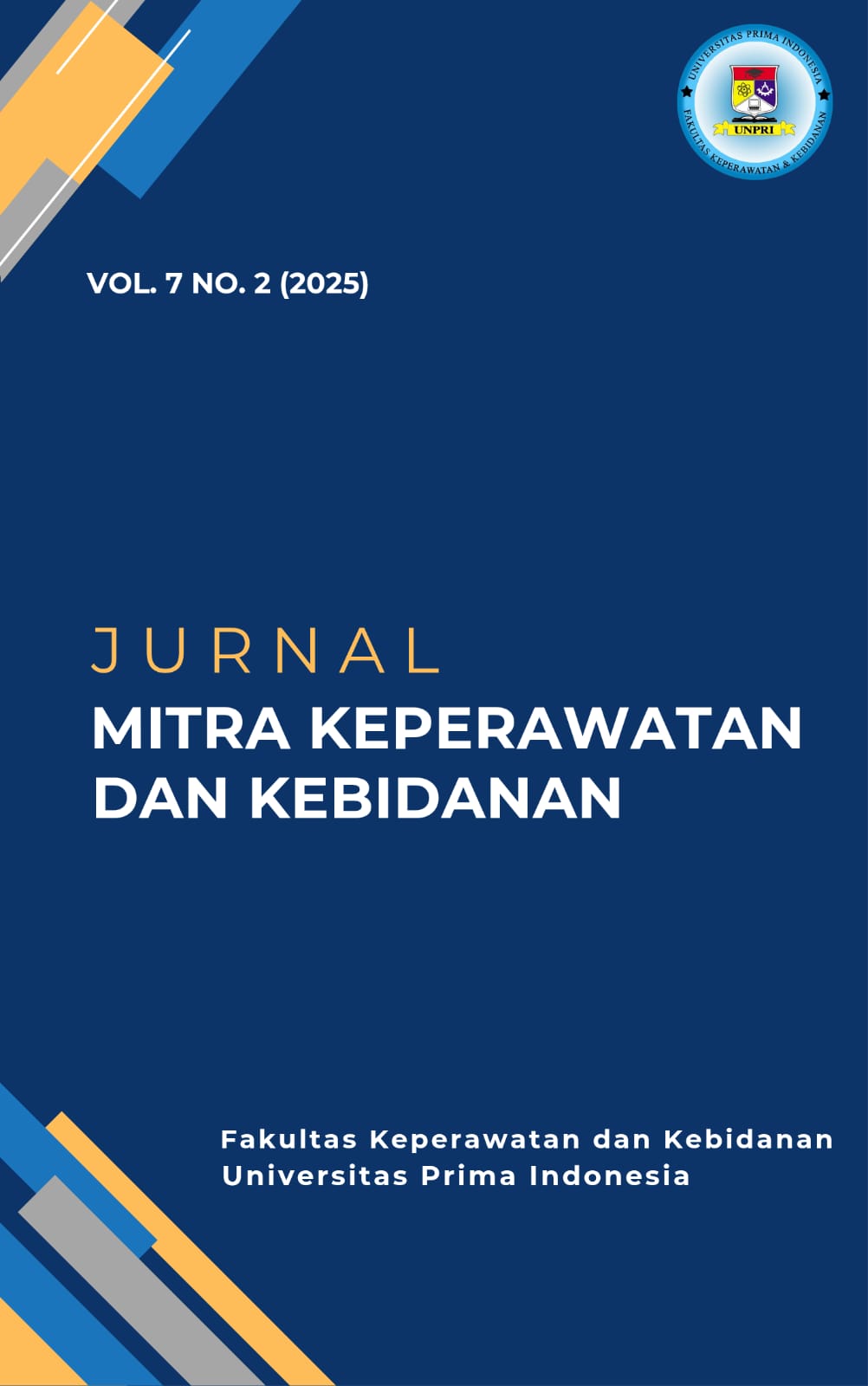Pengaruh Latihan Kegel Exercise dan Delay Urination Terhadap Perubahan Inkontinensia Urin di RSU Royal Prima
##plugins.themes.academic_pro.article.main##
Abstract
The rapid demographic transition in Indonesia has led to an increase in the elderly population, accompanied by age-related health challenges, including urinary incontinence. Urinary incontinence in older adults can result from various physiological and pathological factors, such as decreased bladder muscle tone, diabetes mellitus, Parkinson’s disease, or other chronic conditions, and it significantly affects quality of life. This study aimed to examine the effect of Kegel exercises and delayed urination techniques on urinary incontinence among elderly patients. A pre-experimental study with a one-group pretest–posttest design was conducted at Royal Prima General Hospital Medan between May and June 2025. The study population consisted of 30 elderly individuals aged 60–74 years, selected using a saturation sampling approach. Data were collected through observation sheets and structured interviews, followed by measurement of urinary incontinence frequency before and after intervention. Univariate analysis was used to describe respondent characteristics, while bivariate analysis using a paired t-test assessed differences in urinary incontinence before and after treatment. Results indicated that prior to the intervention, 53.3% of respondents experienced severe incontinence, while after intervention, 66.7% reported mild to moderate incontinence. Statistical testing using the Shapiro–Wilk test revealed a significant difference, with a p-value of 0.001 (<0.05), confirming that Kegel exercises and delayed urination effectively reduced urinary incontinence among the elderly. In conclusion, implementing Kegel exercises and delayed urination techniques demonstrated significant benefits in managing urinary incontinence in older adults. These findings highlight the importance of non-pharmacological interventions to improve elderly health and quality of life.

